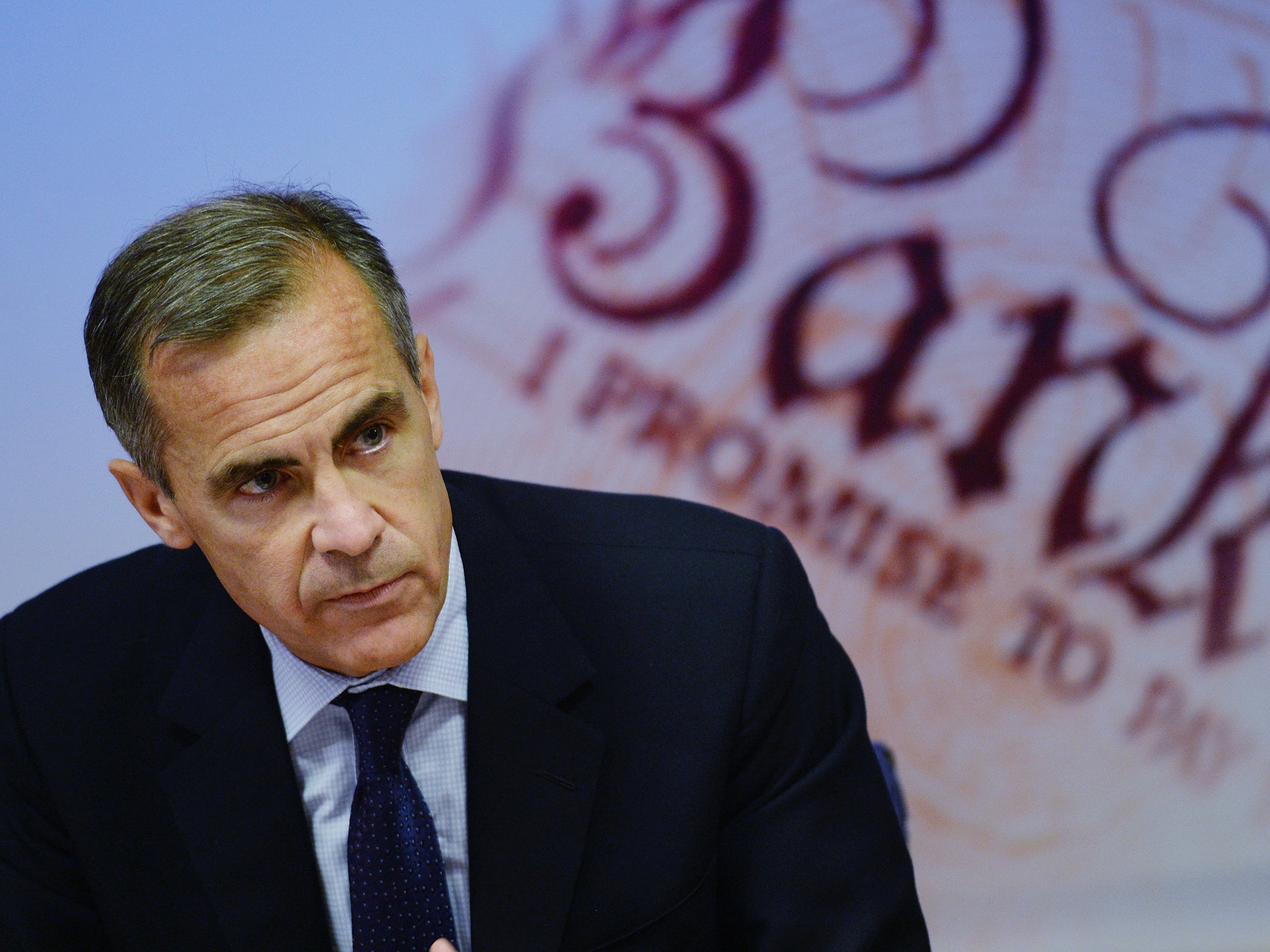Are our foreign workers really holding down UK wages?
Claims have abounded this week that new migrants are to blame for weak pay growth in Britain in recent years - but the evidence suggests otherwise

Right-wing newspapers have changed their tune. Before the general election, they were rubbishing the Labour Party’s claim of a “cost of living crisis” and hailing the Conservatives’ “jobs miracle”. But this week these same newspapers were complaining that immigrants have artificially inflated the UK’s jobs market in recent years, while simultaneously suppressing average wages.
Leaving aside the media volte face, is the critique true? Are foreigners holding down wages? The newspapers cited remarks by the Governor of the Bank of England, Mark Carney (himself a migrant worker), as justification.
Here’s what Mr Carney said at this week’s Inflation Report press conference: “In recent years, labour supply has expanded significantly owing to higher participation rates among older workers, a greater willingness to work longer hours and strong population growth, partly driven by higher net migration.”
Mr Carney went on: “These positive labour supply shocks have contained wage growth in the face of robust employment growth. Wages have grown by around 2 per cent in the past year – less than half the average rate before the global financial crisis – and a key risk is that these subdued growth rates continue.”
It is true that foreign workers have helped to boost the UK’s labour supply in recent years. The latest official data this week show that the number of people in employment who were not born in the UK has risen by around 1.1 million since the financial crisis. That has taken the total non-UK-born employment figure to 4.9 million, or about 16 per cent of the workforce. The number of UK-born people in work, by contrast, is up by just 238,000 since 2008, and has risen to 26.1 million.
One should note that “non-UK-born” does not necessarily mean recent immigrant. The Mayor of London, Boris Johnson, to pluck one salient example, is classified as “non-UK-born” because he was delivered in a New York hospital.
But separate estimates from the Office for National Statistics suggest that immigration has risen over that same period from around 590,000 per year to 624,000 per year under the most recent official figures. Net migration – the difference between immigration and emigration – has risen from 276,000 a year to 298,000, despite the Tories’ promise in the last Parliament to reduce it to the “tens of thousands”.

It is also true that average wages growth over that same period has been very low by historical standards (below the rate of inflation until recently), meaning that in real terms wages were falling. But correlation does not necessarily mean causation. It may well be true that the increase in the labour supply has, as the Governor says, helped to “contain” average wage increases across the economy. But one must also consider the likely size of the migration factor in that effect.
Mr Carney said in a BBC interview yesterday that Bank research suggests older people who are willing to stay in the labour market, and other workers seeking to work more hours in order to sustain their incomes, have been much bigger contributors to the overall increase in the labour supply than higher net migration.
Moreover, empirical economic research into the impact of migration flows on native wages has shown very little effect as far as the average worker is concerned. Using local level data covering the period 2004 to 2012, Jonathan Wadsworth, of the London School of Economics, found no relationship between changes in the share of immigrants in a local area and changes in local wages, either for all workers or even just looking at the unskilled. The flatness of the red lines in the two scatter charts below emphasises the absence of a correlation.
Other research has, it is true, found evidence that immigration has a negative impact on the wages of the bottom 5 per cent of unskilled earners. But even this study suggests the effect is mild. And it also found that migration slightly increases wages for higher paid and skilled native workers.
Many find this empirical evidence counter-intuitive and hard to swallow. If the supply of something increases (labour) won’t this inevitably reduce the price of it (wages)? This might hold true if immigrants were all good “substitutes” for native UK workers. In that case, employers could indeed hold down pay rates across the board. But the evidence suggests newcomers are often not very close substitutes – migrants have different skills and aptitudes.
This serves to highlight one of the often neglected economic benefits from immigration. There is evidence that migrants boost overall productivity (the amount of economic output a country produces for each hour worked) by filling gaps in the workforce that would otherwise remain empty. Research by the National Institute of Economic and Social Research suggests a 1 per cent change in the immigrant share in total employment is associated with an increase in productivity of 0.06 to 0.07 per cent. That’s not huge – but when productivity has been flatlining for seven years, as it has in the UK, it is nevertheless welcome.
But have the dynamics of the labour market changed since those studies were done? The Bank of England did float the possibility in its latest Inflation Report this week. "If potential employees currently not resident in the United Kingdom, but available for work here, can search for jobs from overseas that could make wages less responsive to domestic labour market pressures" it wrote. Andy Haldane, the Bank's chief economist, said something similar in a recent speech, suggesting the traditional way we estimate the size of the UK labour supply might be wrong due in part to modern migration trends. It's possible. But there's no empirical evidence to support the hypothesis at the moment.
The Bank, rightly, has an open mind. But Mr Carney told the BBC that he wanted to “dampen down” the idea that foreign workers represent an economic problem. Instead, the Governor stressed that the UK’s productivity performance is the single most important factor determining future growth in wages and living standards over the coming years. Happily, on this front, the best evidence we have suggests immigrants are likely to prove a help, not a hindrance.
Join our commenting forum
Join thought-provoking conversations, follow other Independent readers and see their replies
Comments
Bookmark popover
Removed from bookmarks